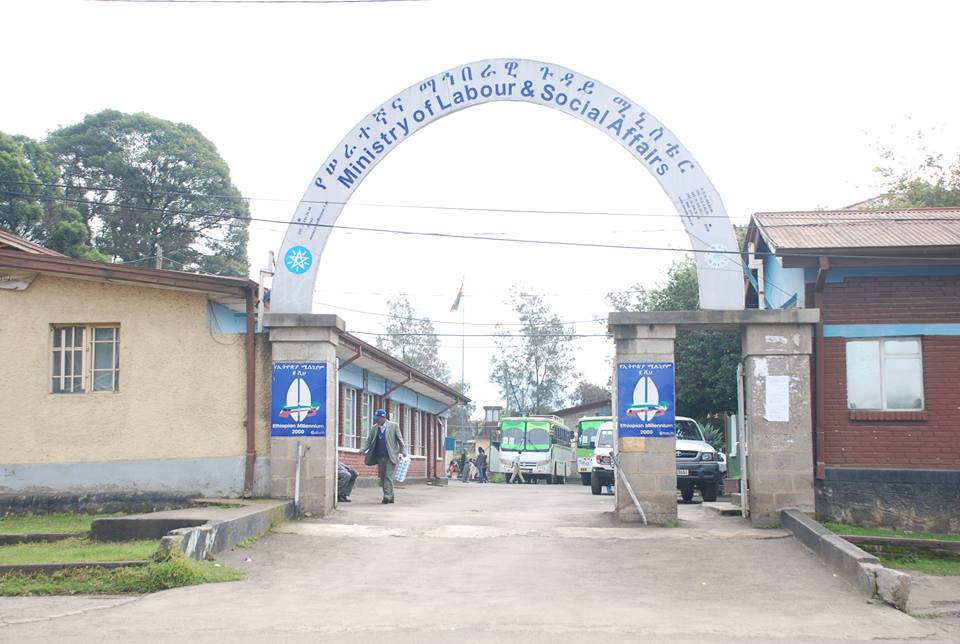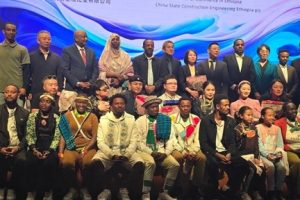
Under the implementation of its National Social Security Policy and Strategy, expanding urban and rural safety net is one of the major development focus areas of the Government of Ethiopia. But the programs implemented so far had shortcomings addressing the needs of people who need special support because of their physical limitations, addiction, homelessness and complexity of their life, among others. Even though the nation continued going through a series of socioeconomic and political reforms, unbalanced rural-urban migration still causes different social problems and vulnerability of citizens, says the Ministry of Labour and Social Affairs (MoLSA).
A study conducted by the Ministry and the Urban Job Creation and Food Security Agency in 2018, has also found out that some 88, 690 citizens are in need of special support throughout the country. According to Asefa Yirgalem, Communication Director at MoLSA, citizens are migrating from rural to urban areas seeking better jobs and infrastructural benefits while there is limited opportunities compared to the current capacity of cities and towns.
The inability of towns and cities to absorb the migrants have created various challenges. Among others, limited opportunity of jobs, low accessibility of shelter, and difficulties to cope up with urban life style are the challenges that would expose these group of people to different addictions and abuses.
The study indicates that most of the people identified as target groups for special support are street dwellers, commercial sex workers and elderly or senior citizens who have no family to support. The government’s effort to reduce unemployment and vulnerability through its National Urban food Security Safety Net Program beginning from 2016 has been benefiting, to some extent, those who have permanent residence in the cities. Assefa says it has been difficult to reach the homeless people due to their mobile and complex life.
The National Social Protection Policy clearly states the significance of providing support and maintaining balanced economic status between citizens. The Policy mainly contains coordinated protective measures to those susceptible to serious vulnerability due to natural and manmade risks, establish multifaceted social insurance mechanisms to prevent exposure to risks, strengthen earnings and improving livelihoods of citizens, improve employment opportunities and living conditions, and provide legal protection and support for those who are vulnerable to abuse and violence.
Without being limited to provide basic services and temporary supports, the implementation of social protection includes measures of strengthening public participation and mobilization, based on the economic, social, cultural, and human rights enshrined in the constitution that have trans-formative nature, establish coordinated system to reduce economic and social differences and imbalances in the society. On the other hand, the Bureau of Labour and Social Affairs of Addis Ababa (BoLSA) recently announced that there are more than 1000 illegal brokers or unlicensed employment agencies in the City.
This has been indicated as one of the major reasons for rural urban migration, which victimized the youth as they suffer from illegal jobs, like commercial sex work. Considering the aforementioned factors the government has prepared an inclusive projects that aims to provide temporary shelters, medical and rehabilitation services, education and trainings, support for entrepreneurship and employment, social and psychological assistance. Asseffa Mebrate Deputy Head at the BoLSA says that though the Bureau is working on discharging its responsibility in implementing the new National Safety Net Program, awareness raising at grassroots level is crucial in order to solve the problem from its source.
This is an activity that would prevent the situation from happening in the future. However, the issues of society members who are currently exposed to different social problems and in need of special support is the reason that has brought the inclusive national urban safety net project to the table.
The project will be implemented within five years in collaboration with World Bank and close to 22,000 citizens will be rehabilitated. The rehabilitation includes creating income-generating jobs, which are mostly related to environmental protection, says Assefa, the Ministry Communication Director. He also stresses that the positive interventions in these peoples’ lives involves several stakeholders in terms of providing temporary shelter, training, medical services etc. Meanwhile, the intervention must also consider their interests and needs.
Herald January 19/2019
BY HENOK TIBEBU





